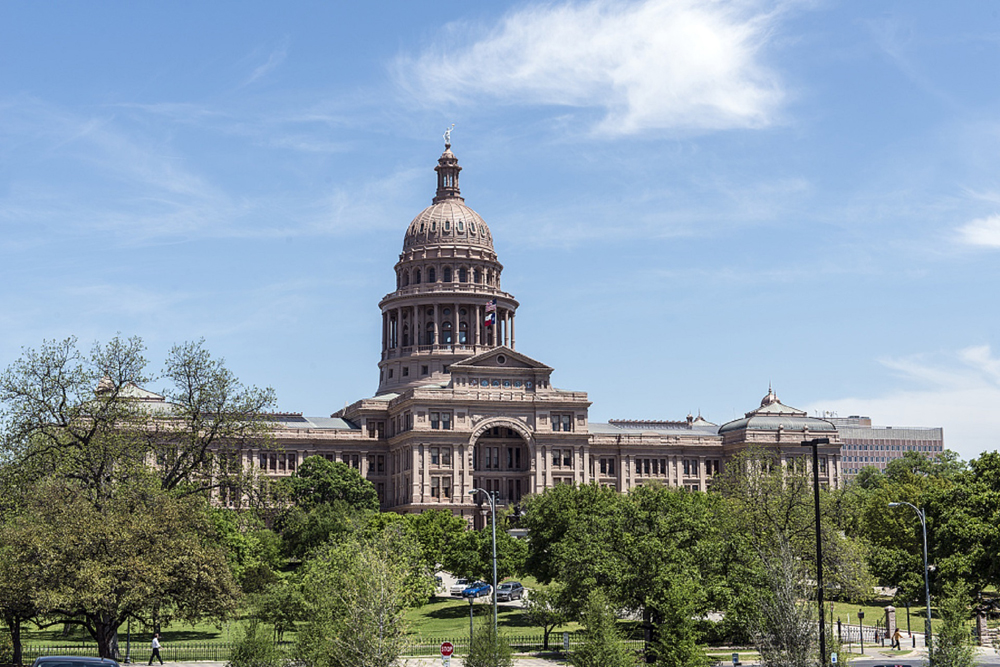
Abbott announces second special session date as Democrats remain AWOL
The last item on the agenda is to pass legislation to amend state legislative quorum requirements to prevent the legislature from not being able to conduct business when one political party decides to leave and disrupt business by breaking quorum.
By Bethany Blankley | The Center Square
Texas Gov. Greg Abbott has called a second special legislative session to start at noon Aug. 7. In addition to the items listed for the first special session that stalled because House Democrats fled the state, the governor added more agenda items, now totaling 17.
“The Texas Legislature achieved a great deal during the 87th Legislative Session, and they have a responsibility to finish the work that was started,” Abbott said in a statement. “I will continue to call special session after special session to reform our broken bail system, uphold election integrity, and pass other important items that Texans demand and deserve. Passing these Special Session agenda items will chart a course towards a stronger and brighter future for the Lone Star State.”
Most Democratic lawmakers remain out of state and it’s unclear when they will return, though Abbott said he will continue calling special sessions until his legislative priorities are passed.
The second special session must first address two key priority legislative items that the legislature failed to address during the general session and first special session: bail reform and election integrity, the governor said.
It will also prioritize how to appropriate federal relief money made available for COVID-19-related health care expenses in light of the fact that local governments already received $10.5 billion through the American Rescue Plan Act.
The fourth agenda item listed is education, a new item on the list, to ensure that in-person education is made available to all children whose parents want it, and to prohibit mandatory face-covering and vaccination requirements for when children go back to school.
Fifth on the governor’s list is border security, with the goal of passing legislation to enhance criminal laws and provide funding from unappropriated available revenues to support law-enforcement agencies and counties.
Sixth is the passing of legislation that would address social media censorship to protect Texans from being censored because of their views, and provide a legal remedy for those wrongfully excluded from a platform.
Seventh is to restore Article X funding, which would fund the salaries of the Legislature, their staff, and legislative agencies.
The eighth item addresses family violence prevention, to pass legislation that requires schools to provide appropriate education to middle- and high-school students about dating violence, domestic violence, and child abuse.
Ninth is to pass a bill identical to Senate Bill 29, which passed the Texas Senate in the 87th Legislature’s regular session, which would prevent a student from competing in University Interscholastic League athletic competitions designated for the sex opposite to the student’s sex at birth.
Tenth is to pass a bill similar to Senate Bill 394 from the 87th Legislature’ regular session, which would prohibit people from providing abortion-inducing drugs by mail or delivery service, strengthen the laws applicable to the reporting of abortions and abortion complications, and ensure that no abortion-inducing drugs are provided unless there is voluntary and informed consent.
Eleventh is to pass a bill similar to House Bill 3507, related to a “thirteenth check,” or one-time supplemental payment of benefits under the Teacher Retirement System of Texas.
Twelfth is to improve on a bill banning critical race theory by passing legislation similar to House Bill 3979 as it originally passed the Texas Senate.
Thirteenth is to pass appropriations bills to address property-tax relief, enhanced protection for the safety of children in Texas’ foster-care system by attracting and retaining private providers to the system; and to better safeguard the state from potential cybersecurity threats.
Fourteenth is to pass legislation that would modify the filing periods and related election dates, including any runoffs, for primary elections held in Texas in 2022.
Fifteenth is to pass legislation that would reform the laws governing radioactive waste to protect the safety of Texans, including further limiting the ability to store and transport high-level radioactive materials in Texas.
Sixteenth is to pass legislation that would shield private employers and employees from political subdivision rules, regulations, ordinances, and other actions that require any terms of employment that exceed or conflict with federal or state law relating to any form of employment leave, hiring practices, employment benefits, or scheduling practices.
The last item on the agenda is to pass legislation to amend state legislative quorum requirements to prevent the legislature from not being able to conduct business when one political party decides to leave and disrupt business by breaking quorum.






